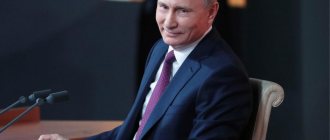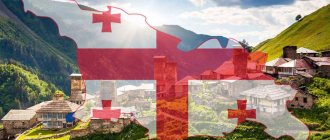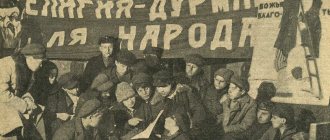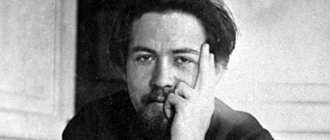How to restore people's trust in the state?
You can fool some of the people all the time; you can fool the whole people for a while; but you can’t fool all the people all the time. Abraham Lincoln We often ask ourselves: what is power for the people? In a truly democratic society, she is a servant, subordinate to the interests of the people; in an authoritarian society, she is a mistress, dictating her will to the people. This question is still relevant today. Russia is called a democratic country, but the current Constitution of the Russian Federation has granted one person, the president, such exaggerated powers that border on autocracy, because they are not balanced by the rights and powers of other government bodies. Our Basic Law did not create a system of political responsibility of the president to society. As a result, state power turned out to be weak. This is all the more dangerous because Boris Yeltsin is being manipulated by a group of industrial and financial oligarchs pursuing their own selfish goals, and the legislative branch of government is deprived of the right of parliamentary control.
The consequences of such a system were disastrous for our country and its people.
Predatory privatization led to an almost free distribution of state property to a narrow circle of people: they were able to buy 210 million shares of Gazprom at a bargain price - ten rubles per share. They sold the Krasnoyarsk aluminum smelter 300 times cheaper than its cost. At the height of privatization, enterprises, mines, seaports, mines were auctioned off for next to nothing.
The result of the uncontrolled policy of the supreme power was a sharp decline in production. Since 1990, not a single large enterprise has been built in Russia, and many industries, previously prosperous and profitable, have withered on the vine. Domestic goods have almost disappeared from the shelves; they have been replaced by imported ones, which are not always of the best quality.
The defense conversion program suffered a complete collapse. The most “advanced” in technical terms, producing products of the highest standard, are closing their workshops, dismissing top specialists and skilled workers.
The fate of the Tushinsky Machine-Building Plant is indicative in this regard. Built in 1932, it was a pioneer in the development of the latest models of aviation equipment and technology, and later in the development of the country’s space complex. Passenger planes and fighter planes were built here, and rocketry was produced. Since 1976, the plant has become the main enterprise for the production of the Buran orbital vehicle. Now the enterprise is not loaded. Its products include body armor, disposable syringes, containers for transporting food products, coffee tables, accessories and other consumer goods.
Another example is the Zelenograd Scientific Center for Microelectronics, created in order to ensure the development and pilot production of integrated circuits at the world technical level in the interests of the national economy and defense of the country. Over the past 30 years, great strides have been made here. Even the Americans admitted in the early 80s that in the field of advanced electronic technology the gap between “Western countries and the Soviet Union had narrowed from ten to three years.”
The year 1991 came, and with it the collapse of all markets for the products of the scientific and production complex. The NGO has been transformed into a concern without any control levers. His prospects are very vague. The West benefits from all this. The West needs Russia, which is technologically backward. IMF loans are aimed at completely different goals than technical re-equipment and improving the economic situation of Russia. The Fund wants to maintain only a certain critical minimum in Russia that does not lead to an explosion of the situation. And this goal is almost achieved. Over the past 10-15 years, the country's capabilities, primarily economic and military, have decreased several times, its military power and security have been weakened, which has sharply reduced Russia's influence on world politics and pushed it out of the ranks of great powers. The most tangible consequence of the “reforms” was the sharp impoverishment of the people. Hence the demographic catastrophe.
Since 1993, the excess of mortality over the birth rate in Russia has been up to 1 million people. per year, the birth rate per woman fell to 1.4-1.8, while the fatal reproduction line was 2.15. What are the numbers? We have almost stopped seeing a pregnant Russian woman or a mother with a baby in her arms on the streets or on public transport. We have 20 newborn deaths per 1000 (in developed countries 8-12).
The greatest danger for our Fatherland is a crisis of power. A situation has developed in which society does not trust the elite that has been ruling the state in recent years, and the elite is increasingly losing the ability to govern.
Russia has enormous potential - scientific, economic, resource. She is able to feed herself. You just need to properly manage everything that the country has. And this requires a change in political and socio-economic course. Stabilization of Russia's economic situation can be achieved by restoring self-reliance.
The main problem of Russian industry is the lack of a developed domestic market and domestic investor. The state currently does not protect domestic producers, does not provide industries that have proven their ability to compete with the West in the domestic market (food industry, petrochemicals, production of computers, refrigerators, etc.) with the necessary protectionist protection.
Instead of developing production and creating new technologies based on imported ones, the country's natural resources are being exported, and they can ensure almost complete self-sufficiency for Russia. Is it normal that a significant portion of export earnings ends up in offshore zones? Its place in the Russian budget is taken by loans from international financial organizations, for which interest must be paid and returned to our children and grandchildren. Since the bulk of these funds goes to non-profit sectors (for example, hundreds of millions of dollars were spent on the construction of the Medical Center for the Administration of the Presidential Administration, on the purchase of equipment and medicines for the treatment of Boris Yeltsin), we can conclude: no one is talking about repaying debts. thinks.
Our creditors have their own reasons. Having entangled Russia in foreign debt, the West began to dictate its line of behavior and turned its loans into the most important limiter on its freedom of political maneuver and the implementation of economic plans. This problem is no longer one of the government or the president, but of the entire people, since it is necessary either to repay the loans or to be sold into “slavery.” The issue is so serious that the economic and political future of Russia in the next 10-15 years will be determined by the terms on which we will be allowed to resolve the issue of paying off external debt.
In this regard, the most pressing question is the effectiveness of the state as the main factor of development. Increasing its role is the most important strategic task.
To solve it you need:
improving the public administration system; tax reform, the transformation of the tax system from a purely fiscal means of extracting money into an instrument of state economic policy; the adoption by the government of a program of austerity in public expenditures, especially administrative ones - they need to be reduced by 10-12 times; control over the spending of foreign loans; they should be used exclusively for economic development; a clearly formulated industrial policy, which is based on support for the real sector of the economy and, first of all, successfully operating and knowledge-intensive industries, financing of scientific research, development of high technologies, knowledge-intensive industries; cost reduction and resource conservation, especially in the field of natural monopolies; creation of a system for protecting investments in the real sector, insuring them, first of all, from political risks; support for small and medium-sized businesses; increasing the profitability of state-owned property - land, subsoil, real estate, state-owned shares. All this can be achieved subject to the conclusion of a social contract between voters and officials, which will ensure the functioning of the state machine. And a broad coalition of statists - representatives of all political forces - will be able to achieve the adoption of urgent measures to prevent the total plunder and destruction of the Fatherland.
Compromise and agreement in society can be achieved on the basis of national interests. These include the ideas of social justice, the preservation of a unified state, an independent and sovereign Russia, as well as the priorities of the country’s economic development.
Now many of our compatriots have apathy, mental emptiness, complete indifference to government affairs. But Russia cannot be saved without energetic popular participation and local self-government. If the necessary transformations are carried out, the people will again believe in the state and, in the words of the great Pushkin, “heed the call of the Fatherland.”
V. TYSHCHENKO, Deputy General Director of the Federal State Enterprise “Scientific Research Institute of Space Instrumentation”, member of the Central Council of the VOPD “Spiritual Heritage”









